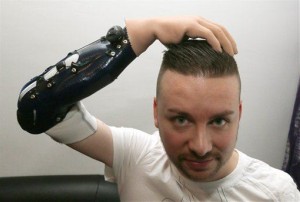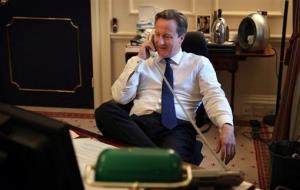Advances in Prosthetics

(AP Photo/Ronald Zak)
http://www.newscientist.com/article/dn27024-men-have-hands-amputated-and-replaced-with-bionic-ones.html#.VO-QIi7CDIU
1) How do we know what is true in science? Is there evidence that this is a promising treatment for many amputees? What percentage of a body can be replaced before questions of humanity arise?
2) Why might a person in thee military view this differently than someone who is related to a person born with no arms? Can I look at it from the recipient's viewpoint? How is my own experience limited in this story? How is it related?
3) How is this connected to sports? To the military? Video Games?
4) How would history change if famous amputees had bionic prostheses? What if our government banned these prostheses? What if the government diverted massive funding to researchers studying this?
5) Why is this significant? Is there something more important I should be considering? If this doesn't affect my life, whose will it impact?
Extension Activities:
1) Students can outline the development of prosthetics and predict future trends and their social impact.
2) Students can consider "The Ship of Theseus" and draw connections to prostheitcs and ideas in transhumanism.





